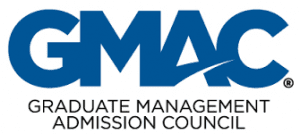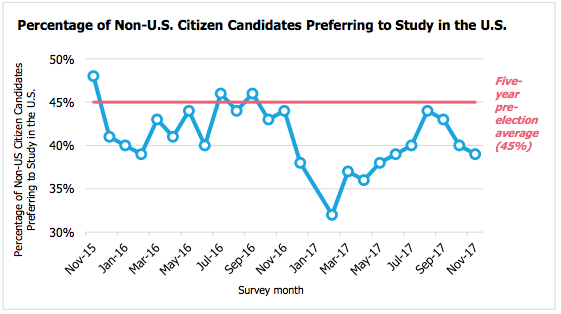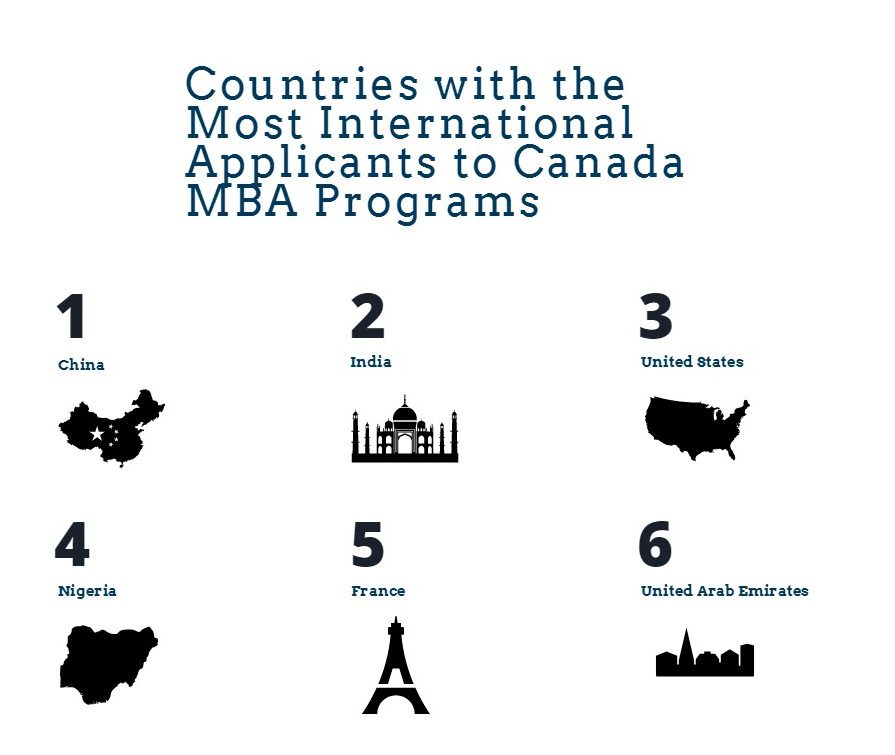The Big Picture: The 5 Most Important MBA Numbers of 2018

Each year there’s a ton of new information that comes out about MBA programs. From new rankings to the latest GMAC news, there are a thousand little tidbits that can overwhelm applicants, students, and alumni. We’ve collected the most important MBA numbers of 2018.
To pare down the news into the information you need to know, we’ve taken a look at the big picture of the MBA for 2018 and outlined the five most important pieces of data you need to know. We’re talking about everything from the decline and U.S. MBA applications to the increase in female enrollment, the higher salaries and GMAT scores, as well as the increase in interest in technology. Continue reading…
The GMAT is Getting Shorter

If you’re planning to sit for the GMAT exam in preparation for applying to business school, you might do well to hold off for a couple of weeks. According to the Graduate Management Admission Council (GMAC), which owns and administers the GMAT, the test will be 30 minutes shorter than it has been in the past, lasting just 3.5 hours instead of the previous 4, including breaks and instructions.
But before you get too excited, we should stress that this does not mean the test will be any easier. GMAC sliced 23 minutes out of the exam sections themselves by including fewer unscored (research) questions in the Quantitative and Verbal Reasoning sections. To further cut down on time, the non-exam screens—tutorials and instructions—were also streamlined.
| Old Structure (Before April 16) | New Structure (After April 16) | |||
|---|---|---|---|---|
| Number of Questions | Section Time | Number of Questions | Section Time | |
| Quantitative Reasoning | 39 | 75 minutes | 31 | 62 minutes |
| Verbal Reasoning | 41 | 75 minutes | 36 | 65 minutes |
No Impact on Scores
The proposed changes will not impact GMAT exam scoring at all since the number of scored questions remains unchanged. Therefore, the Total Score and individual Quant and Verbal section scores from someone who sat for the test prior to April 16, 2018, will be directly comparable to anyone who sits for the new shorter exam. Exam content, question types, and average time per question will remain the same. “It’s the same GMAT exam—just shorter by a half hour,” reads the GMAC website.
So Why Make the Changes?
Believe it or not, GMAC does not want the GMAT to be the most dreaded part of the MBA application process. “We are always looking for ways to help candidates build confidence and control, reduce anxiety, and streamline the test center experience in a way that continues to maintain the high quality and integrity of the GMAT exam,” read an answer on an FAQ page about the new shorter exam.
GMAC reports that operational reviews of its systems and technology changes helped identify a way to shorten the test without impacting the way it is scored. “We also received feedback from test-takers that they felt rushed through the tutorial screens at the test center prior to starting their GMAT exam, and so we reviewed and simplified much of the content on several non-exam screens, and have made the tutorial available in advance,” GMAC added.
“By shortening the two longer sections of the GMAT, combined with the availability of the tutorial information online, we want to create a better and friendlier testing experience that enables all GMAT test-takers to do their personal best on test day.”
Online Tutorial Now Available for Viewing in Advance, at Test-Takers Leisure
The online tutorial will be available via mba.com. GMAC will also include a link to the tutorial in the reminder emails it sends leading up to your scheduled exam.

The tutorial will introduce the general layout of important test screens, including navigation, different question types, and how to track your progress. It will also provide general information about exam questions, break times, and test center rules, as well as in-depth descriptions of each exam section and question type. Finally, it will review choices test-takers face with regard to sending scores to schools, selecting your section order, and decided to accept or cancel your score.
Watching the online tutorial in advance of taking the GMAT is not required, but GMAC does strongly recommend it. “While anyone can access the tutorial at any time, we recommend that you review the tutorial content at least one time within 3 days of your exam day, so the information is fresh in your mind,” reads the FAQ page.
Should You Reschedule Your Exam to Take Either the Shorter or Longer Version?
From April 16 on, all GMAT exams will be delivered in the new shortened format. But if you already have an exam scheduled between now and May 6, 2018, you can call GMAC Customer Service and choose to reschedule it, opting to push it forward, to take the longer exam, or back, to take the new shorter exam.
Both the reschedule fee (depends on early or late reschedule) and phone fee ($10) will be waived provided your request is received on or before April 11 and your exam is scheduled on or before May 6th. To take advantage of this offer, you must indicate when you call that you are rescheduling as a result of the new shorter test. There is a limit of one free reschedule per candidate.
This article has been edited and republished with permissions from our sister site, Clear Admit.
Real Humans of the Syracuse Whitman Class of 2019

On the eve of its 100th anniversary, the student body of the Whitman School of Management at Syracuse University has become more diverse than ever before. Not only do most of the students from the Whitman Class of 2019 come from outside the United States, but the majority also earned undergraduate degrees from various non-traditional backgrounds, expanding what it means to be a Syracuse MBA.

Among the Class of 2019, just under half (46 percent) of students in the program identified as female; well over the national average, according to GMAC data. Along with the 61 percent of students arriving from outside the United States, the Class of 2019 shares the unique distinction of being one of the youngest in the country, with an average age of just 25. In an academic field usually dominated by older professionals with rich, traditional backgrounds, Whitman has managed to disrupt many of the perceptions that come with an MBA.
The average GMAT score has been steadily rising over the past several years as well, jumping from 623 last year to 643 for the Class of 2019. But alongside rising test score averages, the prior work experience of the class has fallen, dropping from an average of 38 months to 28 months in just one year.
The expansive talent pool at Whitman, however, isn’t solely limited to the traditional full-time program. The ever-advancing online MBA, known simply as MBA@Syracuse, allows students to study many of the more traditional MBA specialties, including: accounting, business analytics, entrepreneurship, and finance, as well as supply chain management and marketing management. Not only that, Whitman states emphatically that there is no distinct difference in the curriculum of the online MBA and the full-time program. Rather, the only key difference is flexibility. Students in the online program can take classes from anywhere, with residencies offered in multiple cities outside of Syracuse.
To get a greater understanding of what it means to be a Syracuse MBA student, we spoke with several current students, including an Azerbaijan-born startup founder, an Indian-born analytical software expert, and an American dual JD/MBA prospect who is making a huge transition away from a career in Antarctica. Read on to see what’s in store for these students at Whitman and what life after an MBA may look like.
Are International MBAs Avoiding the United States?

Based on data from the most recently Graduate Management Admissions Council (GMAC) monthly survey, interest in U.S. business schools among international MBA candidates is still below pre-2016 election levels. In fact, it’s below the previous five-year average for each month since the election. And in each of the last three months—between September and November 2017—international application volume has decreased.

Image via GMAC report.
Just before Donald Trump’s election victory, approximately 46 percent of international MBA applicants surveyed by GMAC responded that they would prefer to study in the United States—above the 45-percent, five-year, pre-election average. But not once since November 2016 has that been the case. The percentage of international applicants indicating a preference for U.S. business schools plunged at the beginning of 2017, to below 40 percent in January and just over 30 percent in February. Summer 2017 saw a bit of a rebound—though never reaching 45 percent—but international interest has again declined this fall.
Of 1,992 non-U.S. candidates surveyed between September and November 2017, 23 percent shared that they had previously thought about applying to a U.S. program but have since changed their mind. As for the reasons behind applicant reluctance:
- 54 percent cited concerns about obtaining a job in the U.S. post-graduation
- 51 percent admitted concerns about gaining a student visa
- 47 percent cited safety and security concerns
- 42 percent talked about the political environment
- 39 percent admitted racism and discrimination fears
In addition, when GMAC surveyed nearly 700 U.S. MBA programs, about half admitted that they had received fewer international applications than in the previous year. Only 31 percent reported an increase in international applications. Another 20 percent reported no significant change.
For additional insights from GMAC as well as continued tracking of international candidate interest, visit the GMAC research website.
This article has been edited and republished with permissions from our sister site, Clear Admit.
Advice for Entrepreneurial MBA Students from a Successful Goizueta Alum

Over the last few years, interest in entrepreneurship has increased among MBA students at many leading business schools. According to the 2017 GMAC Alumni Perspectives Survey Report, more than one in 10 alumni run their own businesses (11 percent)—the same percentage as those choosing to work in finance and accounting.
So, it’s not surprising that many top programs are increasing their focus on providing entrepreneurial learning opportunities within their MBA programs. At Emory University’s Goizueta Business School, for example, there are many opportunities to explore entrepreneurship through classes such as “Applied Entrepreneurship,” “Entrepreneurial Practicum,” and “Appcology,” which focuses on emerging forms of applications and services and how they are altering software ecosystems and commerce interactions. There’s an annual Emory Entrepreneurship Summit that is designed to encourage and support entrepreneurs across the university with pitch competitions, keynote speakers, and valuable networking opportunities. And recently, the one-year MBA class class also had an opportunity to hear directly from a successful alumnus about his journey as an entrepreneur.
Matt Fishman, a ’13 MBA and CEO and co-owner of Barking Hound Village, visited campus to talk about how MBA students can make the most of their time in school with an eye toward maximizing the success of their ventures down the road. Barking Hound Village, which Fishman and a fellow Goizueta alumnus purchased in April 2017, is Georgia’s largest dog daycare, boarding, and grooming business with six locations throughout Atlanta.

Inside Barking Hound Village
In addressing students at his alma mater, Fishman’s advice was wide ranging but coalesced around a few key tenets:
Focus on Your MBA Connections
After graduating from Goizueta, Fishman stayed in touch with his MBA classmates. He regularly met up with a group of five alums to discuss opportunities and ideas. It was from these discussions that the thought of purchasing Barking Hound Village came about. “One day, we started to run with the idea, and one thing led to another,” Fishman said in the question-and-answer session with current students.
Fishman’s Goizueta connections proved invaluable throughout the process. He purchased Barking Hound Village with a fellow Emory classmate, Matt Gryder, and since that day has had to protect that connection by putting their “friendship above all of it.” That’s meant a clear division of responsibilities. “We have an operating agreement that’s 50, 60 pages that divvies out duties, equity, all sorts of things,” said Fishman. “It’s constant checks and balances. It’s probably one of the most difficult things.”
Because the connections he made at Goizueta proved to be one of the most important aspects of his MBA experience, he encouraged current students to take advantage of every opportunity to meet new people in the program. “The most valuable thing that you’re going to get out of this place is the network,” he said. “You have to make yourself uncomfortable and sit next to different people, get in different groups, put yourself out there, meet people.”
Don’t Forget to Network
Alumni connections aren’t the only relationships that have been helpful for Fishman. Networking, in general, has been important to his success. For example, it was while Fishman was working as an analyst before business school at security and investment advisory firm Voya and dealing with investments in the pet space, veterinary roll-ups, and retail that he discovered Barking Hound.
As for Fishman’s advice to MBA students, “With networking, get outside your comfort zone.” He continued, saying: “Networking’s tough. Things don’t always come of it, but it’s a game of odds. For maybe 800 people, you get a few back. Be persistent. It gets competitive because everybody’s trying to distinguish themselves. You have to be real, be yourself.”
Understand Your Business
You need to understand your business before you jump into it. For Fishman, he learned a lot of what he needed to know about owning and running a pet business while he was at Voya. “I got access to the books, learned the layout of the land, and built a thesis,” he said. “It’s happenstance, and then you try to line up your cards as much as you can.”
But that was only the beginning. Fishman also took time to understand how to value a dog daycare company before they made any decisions to move forward with a purchase. “The equity side, you have to knock it out in the beginning. So that’s what we did,” said Fishman.
Then, from there, it was all about learning the business. Fishman considers himself a numbers guy, so he had to learn persistence and human capital. He also had to learn about the challenges of being in a service-based business. “You have HR issues,” Fishman stated. “You have leases. For every aspect of it, there’s a legal side that you have to think through.”
Cross Things Off Your Bucket List
For Fishman, starting a business was an item on his bucket list. “It was an itch,” he said. “ I always wanted to be an entrepreneur.” So, he decided to go after it at a time when failure would have relatively little long-term impact. This is the same advice he offers MBA students.
“If you have an idea, or you want to try something new and crazy, whatever, do it,” said Fishman. “If you have ideas, entrepreneurial ideas, take advantage of the fact that you have more time now,” he continued. “Think through or outline some ideas that you might have and chase after them. Look at everything from a downside case. If I’m going to do something entrepreneurial, I don’t yet have a family, so my downside was falling about as low as it’s going to be from here on out.”
So far it has all come together for Fishman since his ’13 MBA, and he encouraged students to take the same risks he did. “There’s nothing to lose with trying to do something and failing in the next nine months. So if there’s a bucket list, it’s to take advantage of your time.”
For more of Fishman’s advice, view the full story at EmoryBusiness.com.
This article has been edited and republished with permissions from Clear Admit
Canada’s MBA Programs are Rising

The recent release of the GMAC 2017 Prospective Students Survey Report revealed some mixed revelations. While the status of smaller U.S. school MBA programs may be up in the air, international programs, particularly in Canada, are looking rosier than ever.
Overall, schools in Canada and Europe saw a 50 percent-plus increase in application volume from international candidates, of which GMAC speculates may be a result of political turmoil, particularly in the United States. This is a direct contrast from four years prior, in which less-than half of the Canada, UK, and other European business schools were seeing international applicant growth.
In the GMAC survey, an anonymous Canadian full-time MBA also noted, “The US presidential election has had a impact on our application numbers. Many international students choose Canada as their first choice.”
Niki da Silva, the Managing Director of the full-time MBA program at the Rotman School of Management at the University of Toronto, recently spoke with the Globe & Mail after the release of the report, saying, “This is our opportunity. We have to be anti-Canadian in this moment and really talk about what we are doing. We don’t tend to do that but we need to.”
By The Numbers
Results from the survey found subtle yet distinct differences between the international applicant pools in the major MBA location destinations.

In the United States, Europe, and Canada, according to GMAC, the two most prolific countries with international applicants were unilaterally India and China, which came in either first or second place for each region. However, for Canada, the remaining top 10 international countries with high applicant pools differed slightly from the U.S. and Europe, especially regarding Middle Eastern and North African countries. The United Arab Emirates (6th most), Tunisia (9th), and Iran (10th) were no where to be found in either the U.S. or European top ten.
Breaking the applicant pools down further, GMAC found an unsurprising correlation between the distribution of citizenship by application for Canada and the U.S. and the new data trends. After Europe, which had the most diverse applicant pool (a tricky stat since Europe is qualifying every country on the continent, while the U.S. and Canada are counted as singular entities), Canada had the world’s second biggest international pool of applicants, with less than 50 percent of Canadian business school students having official Canadian citizenship.
Domestic applications, in contrast, are actually down. But the international pool in Canada is swelling, creating substantial overall growth.
“International applicants comprised the vast majority of applications to business programs in Canada—64 percent of MBA applications and 88 percent of business master’s applications.” – GMAC
Gregg Schoenfeld, GMAC’s Director of Research, also noted upward trend for Canadian schools, saying, “This is the first time in the past five years that the majority, in fact three-quarters [of Canadian schools in the survey], are saying they are growing international volumes.”
“From a speculative point of view, it seems that the U.S. political climate has essentially driven candidates to Canada,” he continued.
YOU MIGHT ALSO LIKE: The Highest Starting Salaries for Toronto MBA Grads
The move to enroll more international applicants in Canadian schools started to emerge several years ago. Following lower periods of domestic enrollment, Canada’s MBA programs made a concerted effort to bring in more talent from abroad, creating a multi-year spring in growth that has not only benefited school enrollment, but fostered a positive international environment.
According to Global Affairs Canada, the result has been a positive economic boon as well. Upwards of 90,000 new jobs were created for Canadians just two years prior, while adding $10 billion to the country’s economy.
Tim Daus, Executive Director of the Canadian Federation of Business School Deans, previously noted that the trend was partly made possible because of the country’s flexible immigration policies, saying, “Canada’s visa requirements are much more flexible than other countries’, which gives us an edge. That makes a big difference for students who want to stay and work afterwards.”
Canadian Accolades
The substantial growth Canadian business schools have seen may not solely be the result of political overtones, rather, that many of the country’s best institutions only continue to improve.
The Schulich School of Business at York University in Toronto earned some hefty recognition from Forbes‘ recently released “Best Business Schools” global rankings, earning the 8th spot among the best international two-year program in the world. Schulich grads, Forbes claims, can expect a five-year net gain of over $48,000.
Last year’s Bloomberg BusinessWeek ranking of the best non-U.S. business schools also recognized both the Ivey Business School at Western Canada University and the Rotman School of Management among the top 25 programs in the world. Both the aforementioned Ivey and Rotman programs were recognized among the world’s 100 best by the Financial Times this year as well.
